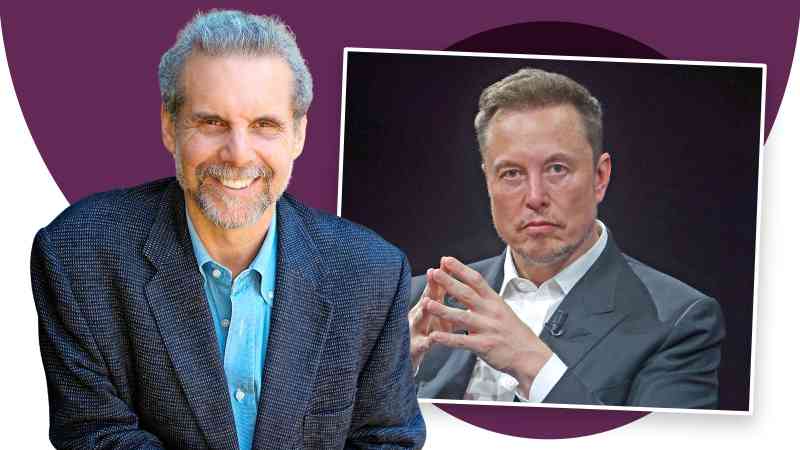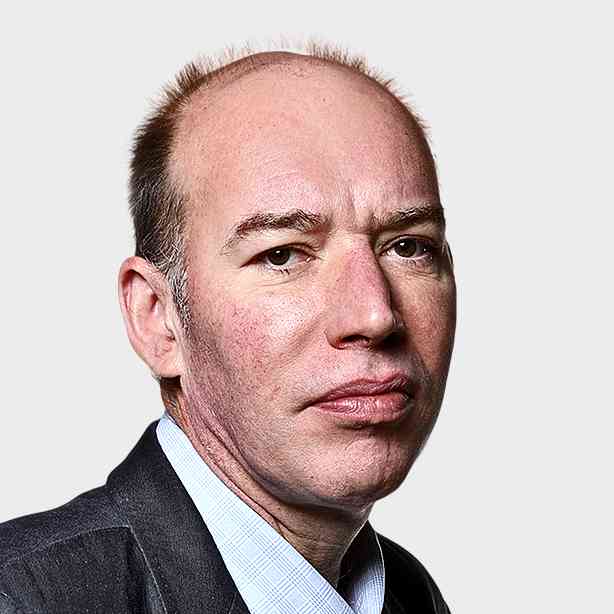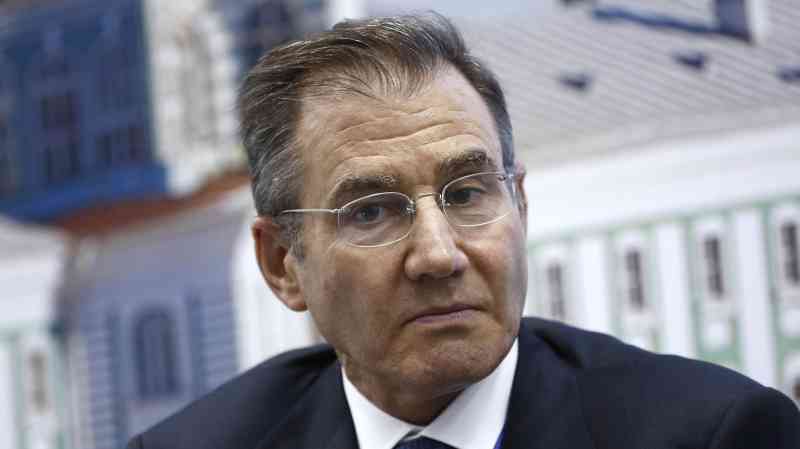Why we’ve got ruder, by the grandfather of emotional intelligence
If “emotional intelligence” was a person it would be nearly 30 years old by now, first conceived as a popular concept back in 1995 and now fully matured and influencing everywhere I look. From the irritating robotic apology for train delays, to the cutesy advertising on the side of smoothie bottles, to the endless corporate workshops on empathy — happily discarded when the redundancies roll around — I imagine the grandfather of emotional intelligence to be a man satisfied with an international legacy of faux-sincere emoting and the unstoppable rise of the touchy-feelies. But no.
Certainly, Daniel Goleman is considerate. Seconds into my video call to his home in upstate New York, he checks if he is talking at the right pace for my needs, which no interviewee has done before. At 77 he has a touch of Ivy League tweediness, a remnant of his psychology PhD at Harvard, mixed with a smooth affability: he uses my name frequently in a way that makes me like him despite my awareness of the technique.
• It’s the Celebrity Watch awards 2023
Yet we are not improving on our emotional quotient in the same way that human IQ is trending gradually upwards. Goleman instead sees a downward spiral. “Rudeness seems to have spread like a virus in recent years,” he writes in his new book, Optimal. “Voices of hatred have become hard to ignore on social media,” and according to research in the Harvard Business Review, rudeness is on the rise in the workplace. In 2005, half of those surveyed said they had been treated rudely at work at least once a month. By 2022, it was 76 per cent. Reports of unruly airline passengers are rising, according to industry research. We may think we are more emotionally literate — certainly, more of us have had therapy. But our increasing digital or real isolation means that our skills at working together in groups — the secret to the success of our tribal species — are in alarming decline. “There is a breakdown of a social code,” Goleman tells me.
The Nineties were a golden era of self-help books: Men Are from Mars, Women Are from Venus; Who Moved My Cheese?; You Can Heal Your Life; The 7 Habits of Highly Effective People and so on along the shelf of phenomenal bestsellers that also became cultural touchstones. It was a time of unbridled peace and optimism, fuelling the sentiment that we could change the world and, even more importantly, our romantic and career prospects, by simply understanding our emotions better. This seemed far easier than any deeper structural reform. In parallel, research into the autistic spectrum was seeping into mainstream debate: were more of us than we realised perfectly “book smart” but held back by deficits in social sensitivity? The granddaddy of them all was Emotional Intelligence by Goleman, a psychologist turned New York Times science journalist who struck gold with this book, which has since sold more than five million copies worldwide.
Unlike the others published at the time, it was a concept that has endured, becoming a significant branch of scientific research in itself. Is this latest book, Optimal, his 18th, a big “I told you so” follow-up to his magnum opus? “It’s both a defence and a celebration at the same time,” he says.
When working at The New York Times, it was Goleman’s habit to comb the scientific literature for interesting concepts. He came across the idea of emotional intelligence in a paper written in 1990 by the psychologists John Mayer and Peter Salovey, now the president of Yale University. It struck Goleman at first as a “fantastic oxymoron: you don’t put intelligence together with emotions”. But when he understood it as a combination of qualities, an ability to be aware of and manage your own emotions, and to be aware of and manage the emotions of others, it struck him as an important insight. The idea of “two intelligences” explained why so many exceptionally bright people were miserable failures in life.
Yet, as he writes in Optimal, “the crucial role of emotional intelligence in workplace performance was then just a strong hunch”. Goleman tells me: “There was very sparse direct evidence. It just made intuitive sense. And apparently it made intuitive sense to lots and lots of people. The book became an international bestseller, but there was no real data, of course there wasn’t.”
• How to meditate the Tibetan way, beat stress and improve your gut
Goleman had no idea this book would catch fire. “I didn’t expect it at all. I was already putting together a proposal for my next book, hoping to get it out before people saw how poorly that book did.”
Instead it changed his life. Goleman had been handling an extremely emotionally literate divorce, with a negotiator rather than a lawyer, and was commuting to work in New York while sharing custody of his children in Massachusetts. The success of the book “allowed me to quit The New York Times, it became a career in itself … I could write about what I wanted to write about. It was wonderfully liberating.” Together with Cary Cherniss, co-author of Optimal, he set up a centre to encourage research into and collaboration on the concept.
“In this book we have now brought together massive amounts of very strong data that shows — you know what? — that early intuition was correct.”
Yet when asked to reflect, Goleman is surprisingly wistful. Yes, emotional intelligence has penetrated two fields, he says. First, education. IQ is a close predictor of academic success. Yet Goleman argues there is “strong data showing that teaching emotional intelligence skills has a very good impact” on life prospects. Second, business, where emotional intelligence has been heavily studied. For example, he points me to a study on a global manufacturing company where engineers rated each other on effectiveness. “It turned out IQ did not predict effectiveness, while emotional intelligence did.”
• The 20 bestselling self-help books of all time
Business leaders have noticed the link with the bottom line: on his first day as CEO of Microsoft, Satya Nadella wrote a memo saying “empathy” (not previously a hot topic among programmers) would be a priority. “Empathy is not a soft skill,” Nadella explained later. Last year Tim Cook, CEO of Apple, gave a talk to a university in Naples outlining his priorities in hiring. The first was the ability to collaborate, as it was the key to the Apple process. “It’s not like somebody goes in a corner,” Cook said, “and figures out [how to build technology] by themselves.”
Yet Goleman is aware that businesses often pay mere lip service to emotional intelligence, and approaches to it are “idiosyncratic from organisation to organisation”. Recently he has seen public debate coarsen.
“I don’t think the idea [of emotional intelligence] has been that powerful generally in culture. It’s very sad that cultures and nations are now more antagonistic. There’s more intergroup rivalry and hostility than I recall from the nineties.” Why? “I don’t think social media has been a good influence.”
Doesn’t the name “social” media suggest it is to do with hyper-sociability? “Well, it’s Balkanised, actually, increasing the ability to connect with extreme voices.” The fact that more of us work from home since the pandemic has also cut down on the “hangout and chatting time that working situations provide, so there might be a waning of those skills”, he says. Figures such as Donald Trump and Elon Musk have become known for their angry outbursts on social media.
• Yes, women really are the emotionally intelligent sex
Who can save us? Perhaps women. Goleman cites the work of Anita Woolley in the journal Science, in which she studied the effectiveness of hundreds of people when working in small groups, on a battery of different challenges designed to approximate much of working life. Each group’s collective IQ was a weak predictor of performance. Instead it was “social sensitivity”, which meant listening and taking turns, that raised the collective performance. Women scored higher on this than men, and the biggest predictor of group performance was the proportion of women on the team. Groups of women worked smarter than groups of men. “We have early evidence that performance may flatten out at the extreme end,” Woolley said in the Harvard Business Review, “that there should be a little gender diversity rather than all women.”
Is the future female? Goleman hesitates. “You could read that from the data. But on the other hand, I wouldn’t discriminate against men on that basis. I think you need to look at the individual.
“You could say women are primed to understand relationship subtleties, more so than men, and that helps them. On the other hand, there are some studies that show that men are on average better than women at managing upsetting emotions. It doesn’t mean that any given man couldn’t be as empathetic as women, or any given woman couldn’t be as good at managing upsetting emotions.”
In the 2020s the new “intelligence” buzzword is “artificial”. Blue-collar jobs have been automated for decades, but, Goleman says, for the first time “people in intellectual work are being threatened by another kind of robot taking over”. Artificial intelligence can handle many pure “IQ” challenges with ease, which may lead us to set more store on humans with high emotional intelligence. On the other hand, AI can increasingly imitate human emotions and may yet learn to mimic exquisite social sensitivity. Will it become emotionally intelligent? “I think not, that’s my guess, but we don’t know.”
Emotional intelligence is not without its critics. Some regard it as too broad an idea. Even though there are flaws in the testing of IQ, at least it can be consistently tested. EQ is, appropriately, strong as an intuitive concept, but at a research level, it is fuzzier to test and its proponents are factional.
The original book had the subtitle “Why it can matter more than IQ”. Goleman seems to have qualified that somewhat: EQ begins to matter more in roles only once people are already selected for their skills and competence.
What would he say were the limitations of emotional intelligence as an idea? “It’s mistaken to think that it always matters more than IQ. People need to understand when it matters and when it doesn’t, that’s the big problem.”
Conversely, the values of emotional intelligence are still, he believes, underrated and under-trained. “We learn a bias in favour of IQ over emotional intelligence in our school years. And that bias persists too often, long after it no longer applies.”
Goleman makes sure I have what I need, solicitously inquires about my deadline and sympathises with such courtesy — so missing from 2023 — I have to keep reminding myself that he is the pro. Even if you think emotional intelligence is a load of phooey, it sure feels better than the alternative. Referring to his escape from journalism he tells me with a modest laugh: “Helen, may you have a bestseller!” It feels like a blessing. Optimal by Daniel Goleman and Cary Cherniss (Penguin £20). To order a copy go to timesbookshop.co.uk. Free UK standard P&P on orders over £25. Special discount available for Times+ members






